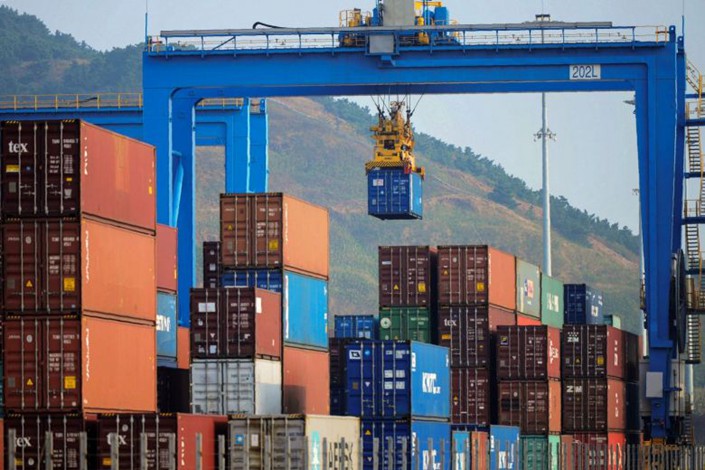Trade War Has Quickened China’s Economic Liberalization, Adviser Says

(The Straits Times) — China is serious about liberalizing its economy and its pace of doing so has been accelerated by its trade war with the United States, says Chinese economist and government adviser Fan Gang.
“That kind of willingness is genuine … China recognizes that it needs more liberalization to become more competitive in the global market,” said the Peking University professor and president of Shenzhen-based think-tank China Development Institute.
But the pace of reforms has been hampered by what he called “vast interest groups” lobbying Beijing against lifting the protection for local firms that it has maintained for years as a developing country.
“China should move on. You have more and more companies operating internationally and enjoying international terms for competition. Why do you still have those protections? ... More and more companies don’t need it,” Fan said, referring to Chinese companies like smartphone-maker Huawei Technologies Co. Ltd.
“Previously, China’s pressure came from the top. The policymakers put pressure on the localities, on the companies, to push them to change,” he said. Now, “some outside pressure may serve as a good push.”
Fan was speaking to The Straits Times on Tuesday on the sidelines of the Forbes Global CEO Conference in Bangkok.
Global stock markets have taken a bumpy ride this year after U.S. President Donald Trump triggered a trade war between the world’s two largest economies, accusing China of stealing intellectual property and unfair trade barriers.
A series of tit-for-tat measures has resulted in more than $250 billion worth of Chinese goods subject to tariffs of up to 25% in the U.S., and some $110 billion worth of American goods are subject to reciprocal taxes in China.
Analysts expect the trade war to put a drag on global economic growth.
Trump and Chinese President Xi Jinping are expected to meet on the sidelines of the Group of 20 (G-20) summit in Buenos Aires next month.
Trump, while saying he expects to make a “great deal” with China, has warned that he is ready to slap tariffs on even more products if a deal does not transpire.
In the face of the trade war, China should focus on developing its own market rather than retaliation, Fan said.
“As long as you can really extend your market further, as long as you can attract more investment in your industrial supply chain, you can win,” he said.
Asked if he was concerned that companies which export products to the U.S. may relocate from China to third countries, Fan said that was “unavoidable.”
The flip side of this is that companies targeting the Chinese market may be nudged to set up base within China to avoid the tariffs, he added.
Given the complexity of modern supply chain networks, it is too early to say which country will ultimately prevail, he cautioned.
“That depends on which market is growing faster … which becomes bigger,” he said. “If the China market is growing faster and becomes bigger, China may not suffer too much.”
This story was originally published in The Straits Times.
Read more about the China-U.S. trade war.
- 1Cover Story: China Carves Out a Narrow Path for Offshore Asset Tokenization
- 2Drownings Shake Chinese Enthusiasm for Travel to Russia
- 3Over Half of China’s Provinces Cut Revenue Targets
- 4Li Ka-Shing’s Port Empire Hit by Forced Takeover Amid Panama Legal Dispute
- 5In Depth: China’s Mutual Fund Industry Faces Overhaul After a Banner 2025
- 1Power To The People: Pintec Serves A Booming Consumer Class
- 2Largest hotel group in Europe accepts UnionPay
- 3UnionPay mobile QuickPass debuts in Hong Kong
- 4UnionPay International launches premium catering privilege U Dining Collection
- 5UnionPay International’s U Plan has covered over 1600 stores overseas





